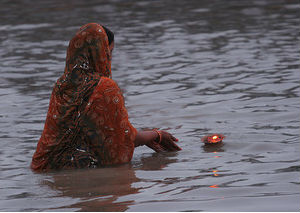Teatime for the Firefly by Shona Patel is a book at once sweeping and intimate, covering the end of the British raj. Layla Roy has an unlucky horoscope and a grandfather who believes in educating women, and so she is sure she will never marry. However, Manik Deb, a British-educated neighbor, takes a romantic interest in Layla even though he is betrothed by his family to another. When Manik's decision to leave his civil service job for management at a tea plantation upends his marriage plans, he moves to Assam and courts Layla by letter. After following Manik to Assam and marrying him, Layla has to navigate not only the English society wives but the political and sectarian upheaval of India in the 1940s. Full of evocative detail and you-are-there description of events, this is a book to be savored over a weekend.
Shona Patel recently published a prequel to Teatime for the Firefly, Flame Tree Road. This follows the life of Biren Roy, Layla's grandfather, introduced in the previous book. After witnessing the fate of his mother as a widow in traditional India, young Biren dedicates his life to uplifting women. He goes to Cambridge to get his law degree and returns to India full of purpose. He marries Maya, an educated woman who tries to help the traditional sari weavers in a nearby village. But tragedy is never far behind Biren, and he rededicates his life to the education of women. Once again, the beauty of India is on full display, as is the harsh life of the poor and marginalized. I definitely recommend reading Teatime for the Firefly first.
The Splendor of Silence by Indu Sundaresan also involves love and the beginning of India as a modern nation. Sam is an American soldier and spy come to a small desert kingdom in India after World War II searching for news of his brother, who fought with a resistance group against the British. Sam ends up falling in love with Mila, the daughter of the local Indian political agent and fiancée to a prince. Sam and Mila have a child, Olivia, though they are soon parted, and the story is framed by Olivia's discovery of a box that promises to reveal the secrets of her parentage. This is another book that revels in physical description of a faraway place, and is deeply romantic and dramatic.
If you are interested more by the encounter of Indians with Britain on English soil, David Leavitt's The Indian Clerk is for you. Detailing the cultural discombobulation of an Indian from a traditional background in Edwardian England, Leavitt's novelization of actual events follows the tragedy of Srinivasa Ramanujan. Ramanujan is a Brahmin working as a bank clerk in his native India when he writes a letter to G.H. Hardy, Britain's top mathematician, about rules for prime numbers. Hardy is so impressed with Ramanujan's brilliance that he convinces him to come to England to work with him at Cambridge. While Ramanujan is hardly a commanding presence, he is at the center of several people's lives until his untimely death. It is not necessary to understand the mathematics that dominate the lives of the main characters in this novel, which also deals with being gay in a society that does not permit it. Highly atmospheric, this character-driven tome tries to see the universe in a grain of sand.



Add a comment to: Traveling to Novel Places: India